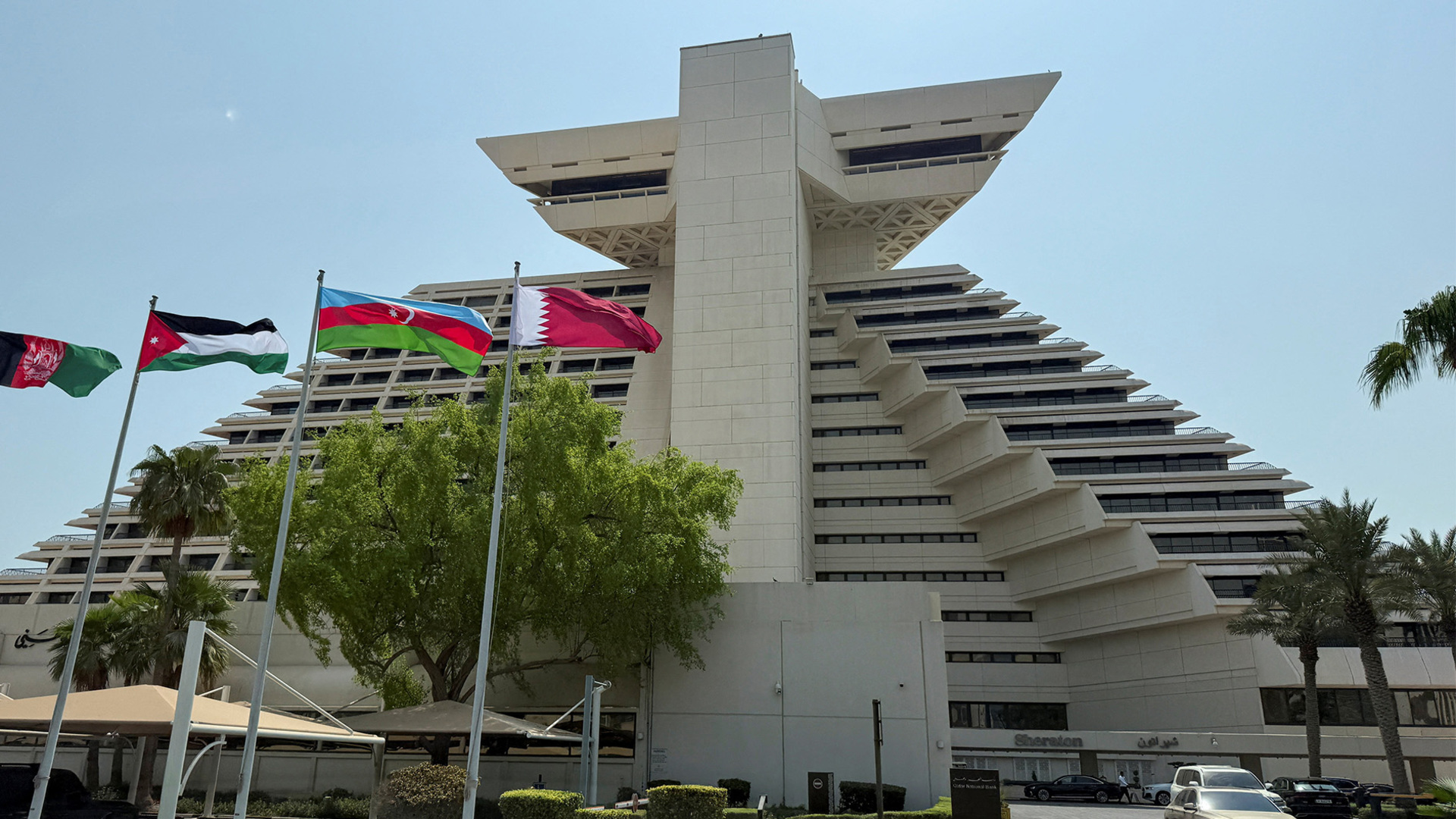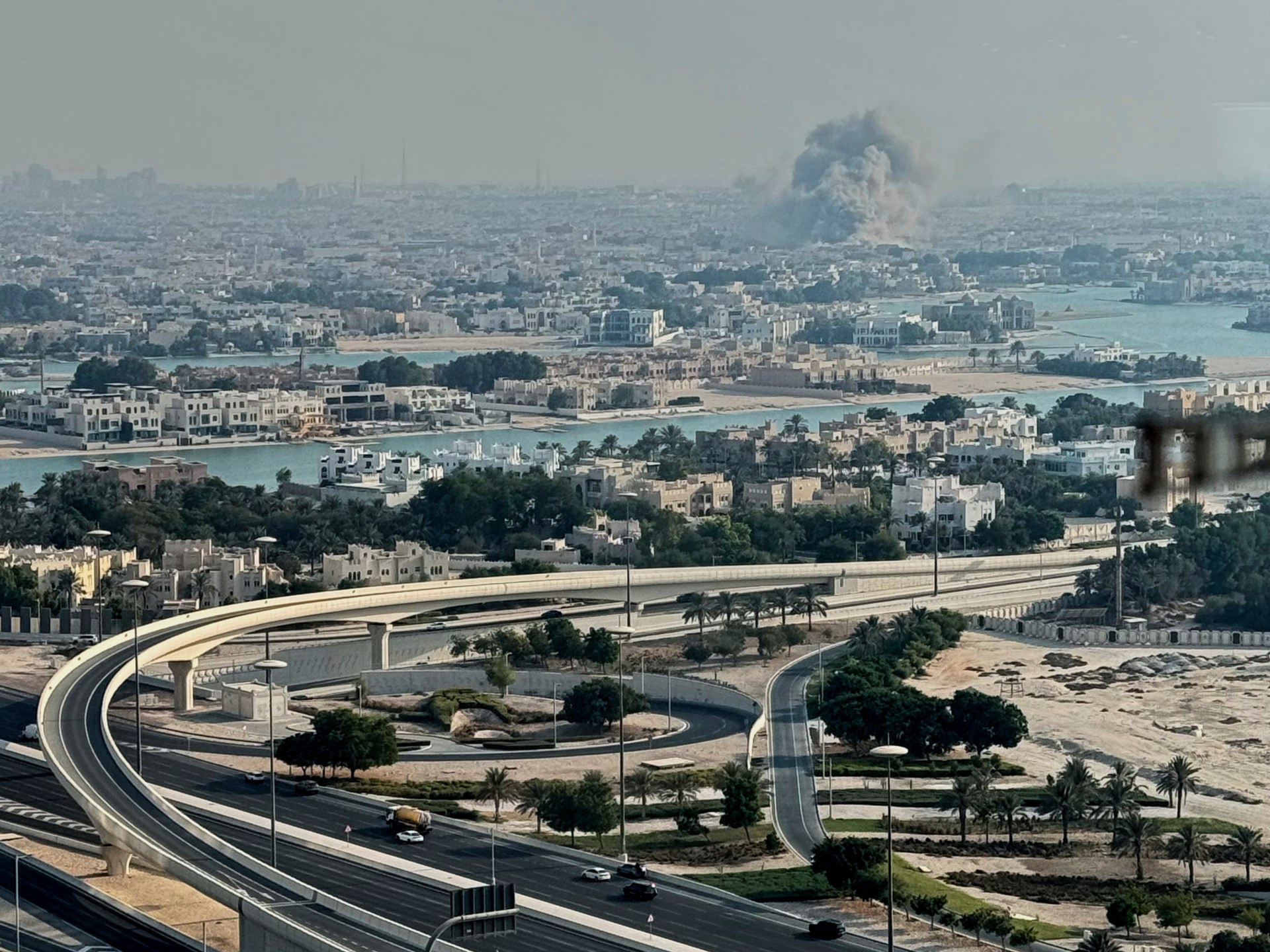Arab-Islamic summit expected to yield concrete measures against Israel | Arab League News
Iran’s president has urged Muslim nations to sever ties with Israel – although it remains unclear whether the summit’s measures will go that far.
Published On 15 Sep 2025
Doha, Qatar – Foreign dignitaries from across the Arab and Muslim world have gathered in Doha, and observers are expecting them to deliver a decisive response to Israel after its attack on Qatar.
The emergency summit of the Arab League and Organisation of Islamic Cooperation (OIC) opens on Monday, a day after foreign ministers from the participating states met behind closed doors in Doha to hammer out a draft resolution proposing concrete measures against Israel.
Recommended Stories
list of 4 itemsend of list
Fury has swept across the region since Israel’s strikes on Tuesday, which killed five Hamas members and a Qatari security officer, missing a Hamas negotiation team that was meeting in Doha to weigh a United States proposal to end Israel’s genocidal two-year war on Gaza.
At the session on Sunday, Qatari Prime Minister Sheikh Mohammed bin Abdulrahman bin Jassim Al Thani slammed Israel’s attack, noting that he had regional support for taking measures to protect Qatar’s sovereignty.
“We appreciate the solidarity of brotherly Arab and Islamic countries and friendly countries from the international community that condemned this barbaric Israeli attack,” Mohammed said, adding that Qatar intended to take “legitimate legal measures … to preserve the sovereignty of our country”.
Possible avenues of action
Pakistani Foreign Minister Mohammad Ishaq Dar underlined the importance of the summit reaching a “clear roadmap … to deal with this situation”, telling Al Jazeera’s Osama Bin Javaid that the world’s Muslims “would be all eyeing this summit, waiting to see what comes out of it”.
Two days after the Israeli attack on Doha, Pakistani Defence Minister Muhammad Asif warned that firm action was required in response to Israel and no country should think it would remain untouched by the Gaza war.
Speaking to Bin Javaid, Ishaq Dar echoed the sentiment, criticising the lack of results from United Nations Security Council discussions.
Asked what practical measures could be pursued, he said: “I think they’ve [Arab countries] already talked on these lines. It’s a sort of combined security force type,” adding, “A nuclear-powered Pakistan obviously would stand as a member of the Ummah [community of Muslim believers]. It will discharge its duty.”
For his part, Iranian President Masoud Pezeshkian called on Muslim nations to sever ties with Israel.
“Islamic countries can sever ties with this fake regime and maintain unity and cohesion,” Pezeshkian said before departing for Doha, adding that he hoped for a decision on measures against Israel.
Some analysts said the summit, which ends on Monday evening, could yield concrete measures against Israel for the first time.


